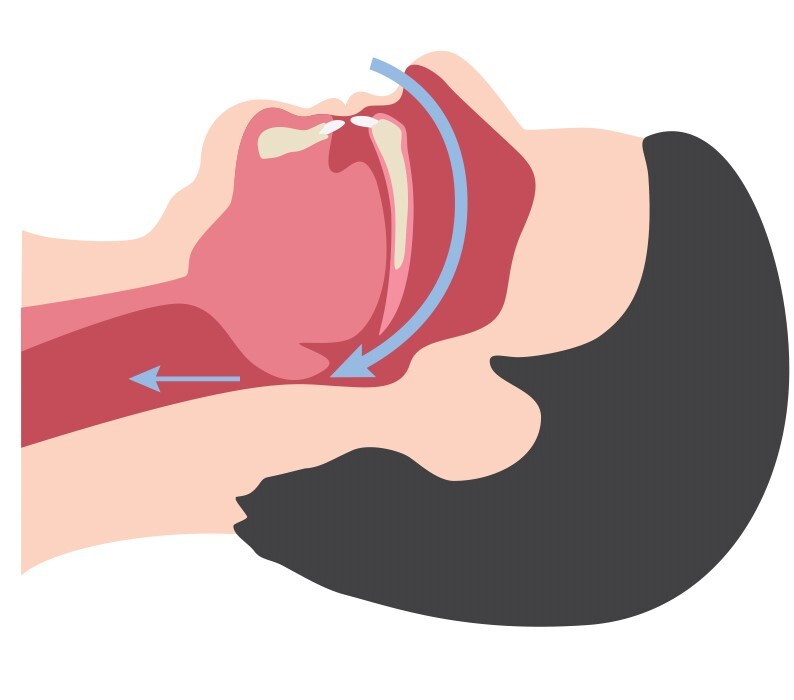
About sleep apnea
Sleep apnea is a common sleep disorder characterized by repeated interruptions in breathing throughout the sleep cycle. These interruptions, called apneas, are caused by the collapse of soft tissue in the airway, which prevents oxygen from reaching the lungs. Sleep apnea disrupts the sleep cycle and can dramatically impact energy, mental performance and long-term health. It’s important not to ignore potentially dangerous symptoms, such as snoring and excessive daytime sleepiness, and to consult a sleep specialist. Treatment can help you get the kind of sleep you need to help you feel more like yourself every day.
User-friendly design helps put you in control
The Philips Dream Family sleep apnea platform was designed with your needs in mind. Our DreamWear system of masks has a unique, in-frame air-flow and innovative air tube connection at the top of the head, giving you greater freedom of movement throughout the night and a more comfortable sleeping experience.
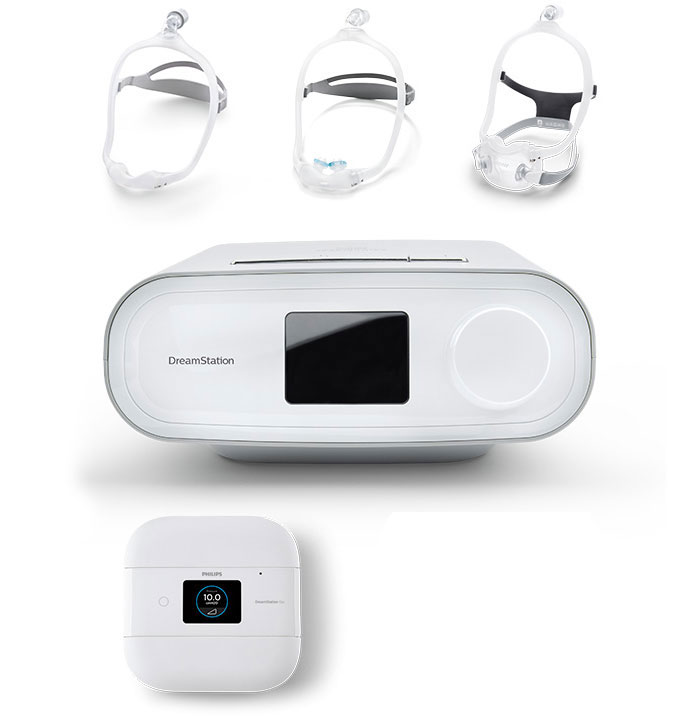
Ingenious comfort User-friendly and quiet DreamStation sleep apnea therapy machines to match your personal needs Lightweight, easy to carry and travel-ready DreamStation Go Travel PAP machine at just 2 pounds
DreamWear mask system with your choice of Nasal, Pillows or Full Face cushions
More sleep apnea solutions from Philips
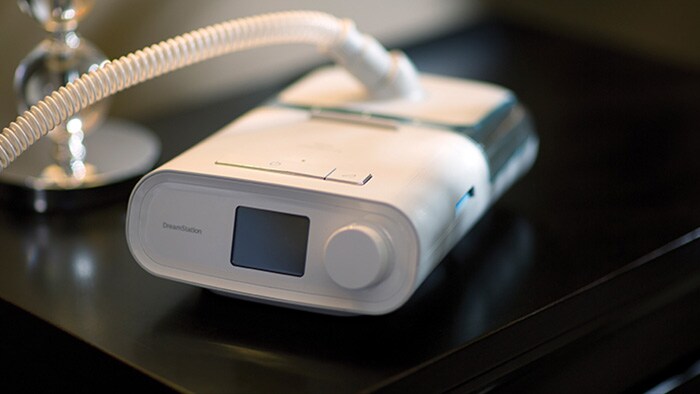
Sleep apnea machines Browse sleep apnea systems that provide therapy, enhanced comfort and tools to help you stay motivated.
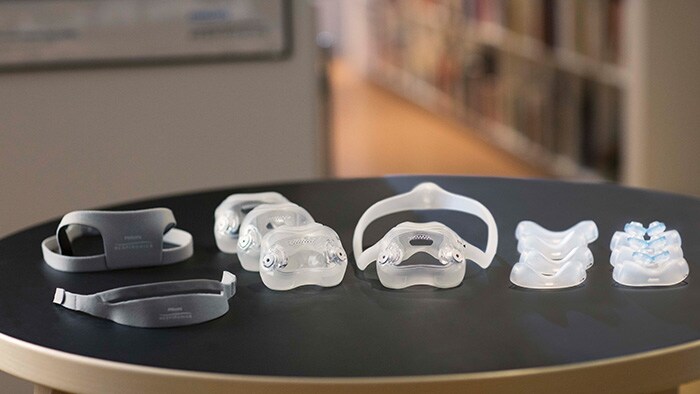
Sleep apnea masks We offer a variety of designs, such as Full-Face, minimal-contact, Pillows and pediatric masks.
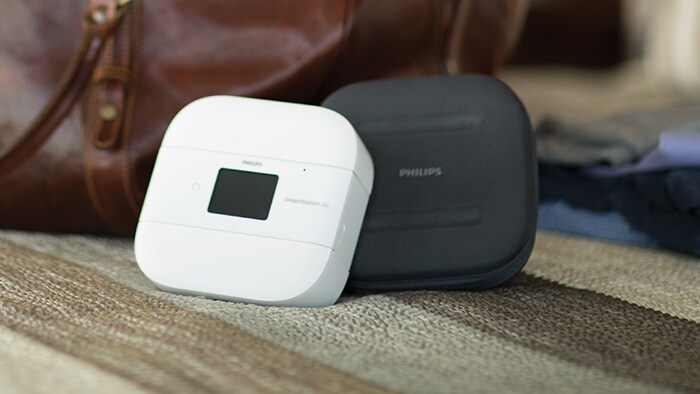
Sleep apnea travel solutions Travel PAP devices, travel cases, bedside organizers, power adapters and battery packs make it simple and convenient to keep your therapy going strong.
Frequently asked questions
- What is obstructive sleep apnea?
-
Obstructive sleep apnea is a condition in which a person stops breathing repeatedly through the night. Breathing stops because the throat or “airway” collapses and prevents air from getting into the lungs. Sleep patterns are disrupted, resulting in excessive sleepiness or fatigue during the day.
- What should you do if you think you may have sleep apnea?
-
Evaluation by a doctor specializing in sleep disorders is recommended. Have a sleep study done. A sleep study can provide the doctor with information about how you sleep and breathe. This information will help the doctor to determine your diagnosis and treatment options.
- What are potential consequences of untreated sleep apnea?
-
There is possible increased risk for:
- High blood pressure
- Heart disease and heart attack
- Stroke
- Fatigue-related motor vehicle and work accidents
- Decreased quality of life
- What is the treatment for sleep apnea?
-
Most commonly, positive airway pressure (PAP) therapy is the treatment. It is noninvasive and can help with symptoms when used as prescribed. Less commonly, surgery or oral appliances are used, which may be effective in certain cases. Any treatment plan should include weight loss if needed, exercise and avoiding alcohol, sedatives and hypnotics.
- How does PAP or CPAP therapy work?
-
CPAP (Continuous Positive Airway Pressure) provides a gentle flow of positive-pressure air through a facial mask to keep the airway open during sleep. As a result:
- Breathing becomes regular during sleep
- Snoring stops
- Restful sleep is restored
- Quality of life is improved
- Risk for high blood pressure, heart disease, heart attack, stroke and motor vehicle and work accidents are reduced
- What can put you at increased risk for sleep apnea?
-
- Overweight/obesity
- A large neck or tongue
- Extra tissue or crowding in the airway
- What does an apnea episode look like?
-
- What are the benefits of regular usage of PAP therapy?
-
Most PAP users who remain committed to treatment enjoy:
- Increased energy and attentiveness
- Fewer morning headaches
- Reduced irritability
- Improved memory
- Increased ability to exercise
- Lower blood pressure
- Decreased risk of strokes and heart attacks
- Increased effectiveness at home and at work
- Improved overall quality of life
- What does a mask do?
-
Masks are used to deliver the air from the therapy device to you. A comfortable mask is a key factor in being able to use your treatment daily, so finding a mask that fits you and your lifestyle is important. Most masks have built-in exhalation ports that vent your exhaled air. Talk to your homecare provider about the different masks and headgear available.

Have a question?
We’re here to help

Call +60 123960457

